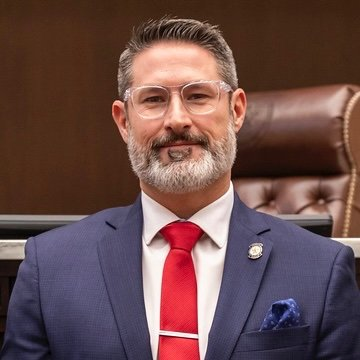Defending the Necessity of Scripture as the Foundation for Public Education
The Bible is the very Word of God. It is inerrant, infallible, authoritative, and sufficient to equip the man of God for every good work. It is living and active, sharper than any two-edged sword, piercing to the division of soul and spirit, of joints and marrow, and discerning the thoughts and intentions of the heart. It is powerful unto salvation, and its proclamation never returns void.
The Bible is never less than any of these things in the life of the Christian and the Church. However, there is also more to what the Bible is for civil society and education.
It is also the foundation of Western Civilization and a vital document that has profoundly shaped our entire world, and particularly the United States. Its unparalleled influence on culture, law, literature, art, and ethics makes it an essential subject not just for church and Bible study but also for public education.
This article explains Oklahoma State Superintendent Ryan Walters’ recent directive for the Bible to be taught in Oklahoma Public Schools and defends why he is morally and constitutionally right to do so.
Ryan Walters’ Mandate: Put the Bible Back in the Classroom
Last Friday, Oklahoma State Superintendent Ryan Walters mandated the inclusion of the Bible in the state’s public school curriculum. Specific guidelines for how the Bible is to be incorporated have not yet been released, but Walters aims to provide students with a comprehensive understanding of the Bible’s profound impact on Western Civilization, American history, and other subjects. He emphasized that this curriculum would not promote any specific religious denomination but would focus on the Bible’s significance to history, art, ethics, and other subjects.
While many Christians are celebrating this announcement of the future public reading and teaching of the Word of God in Oklahoma public schools, some non-believers and believers alike are arguing that the mandate was unconstitutional or unbiblical.
Is Walters’ Directive Constitutional?
Because biblical and constitutional literacy is at an all-time low in America, many have wrongly argued that Walters’ mandate is unconstitutional. I will address these objections and demonstrate how the directive complies with both state and federal law.
The Directive Is Legal Under Oklahoma Law
Some critics have tried to claim that Oklahoma law forbids teaching the Bible in schools, citing Oklahoma Statute §70-11-101: “Sectarian or religious doctrines—Forbidden to be taught in schools.”
However, they need simply to read the actual text of the law, “No sectarian or religious doctrine shall be taught or inculcated in any of the public schools of this state, but nothing in this section shall be construed to prohibit the reading of the Holy Scriptures (emphasis mine).” Inculcation or indoctrination is the concern, not objective, academic teaching.
Further, §70-11-103.11 on “Elective Course Offering on Old and New Testament” provides a detailed framework for elective courses on the Old Testament, the New Testament, or both. These courses are intended to teach biblical content, characters, poetry, and narratives essential for understanding contemporary society and culture and familiarize students with these texts’ historical, literary, and cultural impact. The Bible is to be the primary text, supplemented with additional resources, ensuring no single translation is mandated for all students.
The Oklahoma Academic Standards for Social Studies, released in August 2019, emphasize five key principles to guide educators in teaching the Bible and religious texts: Context, Liberty, Examination, Assimilation, and Respect.
First, educators should provide Context by teaching the historical and cultural background of religious texts pertaining to the subject matter. Second, Liberty should be emphasized by highlighting the importance of religious freedom and First Amendment protections, showing their role in shaping democratic values.
Third, Examination involves engaging students in analyzing religious texts within their historical and cultural contexts. Fourth, Assimilation directs teachers to integrate religious teachings into the broader social studies curriculum, connecting them to themes in history, civics, and cultural studies.
Finally, Respect fosters an environment that helps students understand different religious beliefs and practices in a respectful manner. By following these principles, educators can enrich their social studies curriculum and promote a comprehensive understanding of religion’s role in history and society.
The Directive Is Legal Under Federal Law
Not only is Walters’ mandate in line with Oklahoma law, but it also has U.S. Supreme Court precedent to back it up. For instance, Abington School District v. Schempp (1963) permits the study of the Bible for its historical and literary value as long as it does not promote sectarian doctrine. Justice Clark, writing the majority opinion, stated, “It certainly may be said that the Bible is worthy of study for its literary and historic qualities. Nothing we have said here indicates that such study of the Bible or religion, when presented objectively as part of a secular program of education, may not be effected consistently with the First Amendment.”
In Stone v. Graham (1980), the court ruled against religious symbols and doctrines in schools but affirmed that the Ten Commandments could be approached within a study of history, for instance, exploring their influence on legal systems and cultural norms.
Even these rulings from the mid-20th century, at the height of liberal judicial activism, ultimately permit Bibles in schools; anyone trying to argue otherwise is making a major stretch in the anti-Bible direction, especially given the actual text of our Constitution. Nearly every state had an explicitly Christian government at our nation’s founding. When the First Amendment says “Congress” shall make no law establishing religion, it means just that. The Church and state, as entities under the authority of Christ with distinct roles and tools, ought to remain separate. However, there was no original constitutional prohibition on a state-level establishment.
Including the Bible in education is not unconstitutional, but the prohibition of it is. Getting the Bible back into the classroom is all the more pressing when you realize what its absence has led to. For example, former U.S. Attorney General William Barr argued that many schools have become the mechanism by which religion is being driven from society: “Ground Zero for attacks on religion are the schools, and, to me, this is the most serious challenge to religious liberty today. The problem is not that religion is being forced on others. The problem is that irreligion is being forced; secular values are being forced on people of faith.”
The Primacy of the Bible in Education
Some argue that the state must remain “neutral” and that if the Bible is allowed, then so must the Quran, Book of Mormon, Satanic Tenets, and every other religious document. It is thus better for public schools to not touch religion altogether, the reasoning goes.
However, we must come to grips with the fact that, from a historical and theological perspective, the Bible occupies a place of unique importance in the world, Western Civilization, and the U.S. that other religious texts simply do not hold. In this, the 2024th year since the first coming of Christ, the content of other religious books is not the literal turning point of recorded human history, and they never will be. They did not shape Western Civilization. They did not influence the Founders of the United States and of Oklahoma. They did not transform Rome from brutal barbarism into a civilized Republic. They did not inspire Wilberforce, Newton, and Lovejoy to abolish slavery. The Bible did that.
It would, therefore, be inappropriate to attribute the same academic significance to all religious documents. From a historical perspective, the Bible stands out. This is not to say that public schools will teach sectarian doctrines, but it is to say that the exclusion of the Bible from public schools is a failure to educate.
Is Walters’ Directive Christian?
Not only have pagans at the Freedom From Religion Foundation and ACLU challenged Walters’ directive, but he has received pushback from some Christians who have embraced the myth of neutrality. Though it has been drilled into our minds by secular culture, Christians must not shy away from the reality that the Bible, in addition to being more academically and historically important, is fundamentally good in a way that these other religious texts are not. It teaches about the power of God unto salvation, and its proclamation is powerful to change hearts and minds. There is never a wrong place to read from God’s Word. Students will be blessed and improved by their exposure to the Bible.
While I believe in the separation of Church and state, there can never be a separation of God and state, both in the sense that (1) God is the One who created and ordained civil government and requires the obedience of civil officials and (2) that neutrality is a myth.
All law is rooted in someone’s view of morality, which is rooted in their metaphysical views about who defines reality and how. All law has religious underpinnings. It is not a question of whether but of which.
As it applies more specifically to these purposes, all education is rooted in someone’s views of history, philosophy, art, ethics, etc. The “neutrality” advocated by groups like the Freedom From Religion Foundation should be understood as nothing less than an instrument to de-Christianize a Christian society.
When the Bible is forbidden from the school library while gay porn is brought in, we are obviously dealing with something other than neutrality. We are dealing with a rather transparent agenda to replace Christian ethics with postmodern, transgressive paganism. Not only is porn in the libraries but the school buses are sometimes used as floats in Pride parades. The textbook companies of the primary textbooks used in public schools are loudly and proudly pro-LGBTQ+. Given how plainly monstrous it all is, we have a duty to defeat that agenda. “Neutrality” is not going to cut it.
Education shapes the culture and religion of the future. To understand what a society will be like in the next generation, one must merely look at the content and quality of childhood education. In this way, education is best understood as enculturation—the passing down of culture, values, and worldviews from one generation to the next. A Christian culture has the right and duty to pass that culture down to the next generation, especially when the competing pagan culture is as brazenly wicked as the one we face.
Some Christians have expressed concern that unbelievers will be the ones teaching, which jeopardizes the faithfulness of the presentation of the Bible given to students. This is a fair concern, but the answer cannot simply be that we remove the Bible from education altogether. It is too good a book and too central to who we are as a people and where we came from. Superintendent Walters is working on guidelines for how the Bible should be integrated into the curriculum that schools must abide by.
What Would the Founders Think?
Speaking on the founding of our republic, John Adams said, “The Bible is the most republican book in the world.” Many have noted that the founders had a common consensus that the Bible was fundamental for cultivating the cultural ideals that gave citizens the competence for self-government. Our nation was built upon the reality that if and when the Christian moral foundations break down, so does our nation. As John Adams put it, “We have no government armed with the power which is capable of contending with human passions unbridled by morality and religion. Our Constitution was made only for a moral and religious people. It is wholly inadequate for the government of any other.”
The Christian moral framework is necessary for personal liberties, limited government, the protection of God-given and unalienable rights, free markets, defiance of tyrants, and the defense of many other blessings of liberty. Failing to teach our children these truths is seeking our demise.
America’s founding documents and principles are deeply rooted in biblical concepts. Early charters and legal documents in the colonies often referenced biblical principles. Massachusetts and Pennsylvania were founded to create societies based on biblical laws. The idea of natural rights, central to the Declaration of Independence, is rooted in the biblical notion of humans being created in the image of God.
These principles have shaped the governance structures of the United States and many states within it. Without significant reference to the Bible, as it pertains to these ideals, students will be denied an understanding of the context for the world in which they live and of the principles without which, as our Founders warned, we are doomed.
Conclusion
Incorporating the Bible into Oklahoma’s public school curriculum is a significant step toward providing a comprehensive education that honors our cultural and historical roots and effortlessly complies with U.S. and Oklahoma law.
The Bible’s profound impact on Western civilization, American history, and moral principles is undeniable. By objectively teaching the Bible, we enrich our students’ understanding of the world and equip them with the knowledge to appreciate our society’s foundational values. I fully support Superintendent Walters’ decision and look forward to the positive outcomes of this initiative.
-

Dusty Deevers is a pastor at Grace Reformed Baptist Church of Elgin, State Senator for Oklahoma District 32, and CEO of Deevers Properties. Dusty has worked in SBC life for decades and previously served on the staff at Southwestern Baptist Theological Seminary. He is the author of Christian resources on abolishing abortion, the Christian view of the role of civil government, and Loving Your IVF Neighbor: In Vitro Fertilization, Assisted Reproduction Technologies, and Loving Your Neighbor as Yourself. He holds an M.Div. from SWBTS.

